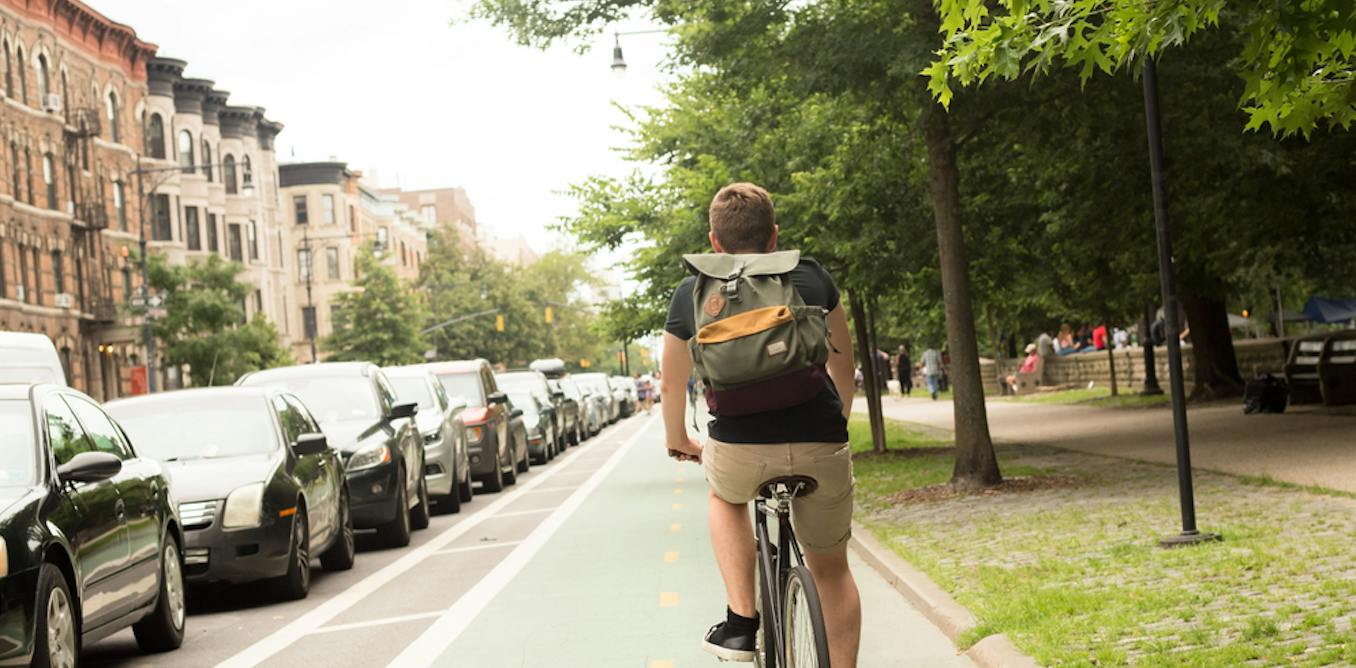Our state of health depends in part on our modes of travel. The time we spend traveling by bike, car or public transport can actually have a positive or negative effect on our physical and mental health.
However, the organization of our neighborhood favors certain modes of transportation more than others.
It is the case of the Saint-Michel neighborhood in Montreal, whose urban planning is centered on cars. In addition, it is one of the most disadvantaged neighborhoods in Quebec. Therefore, people who do not own a car rely on public transport, which imposes longer and more tiring journeys on them.
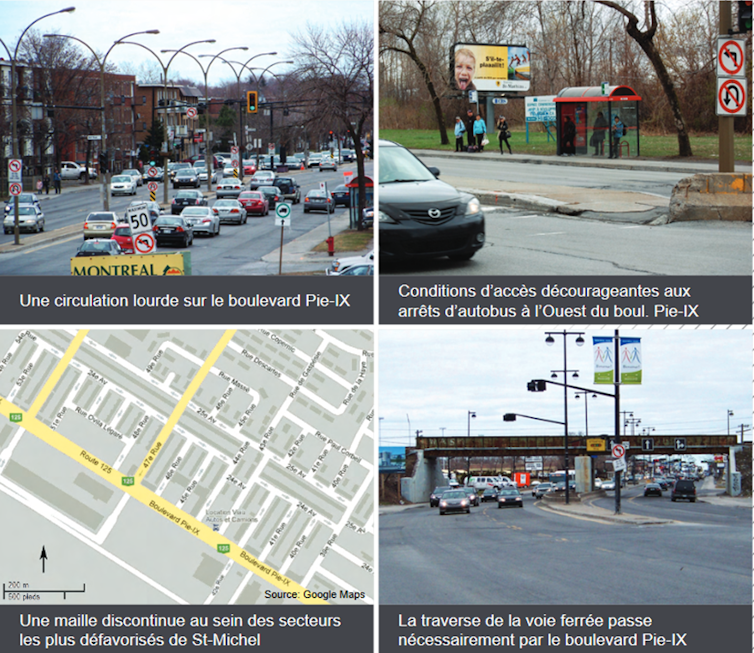
(Célia Kingsbury), provided by the author
Due to the unsuitable and dangerous traffic for active travel, the bicycle is largely absent from the mode of transport in Saint-Michel. And that’s not good news for residents, as this mode of transportation promotes social participation and has many benefits for physical and mental health.
It is precisely with this aim that the organization North-south cycle launched a pilot project in 2023 Build your own bike!winner of the Civic Incubator House of social innovation.
This is an after-school program offered to young people from high school in the Saint-Michel district, supervised by responsible volunteers, i.e. their physical education teacher and mechanics coach. Students were asked to build their bicycle from A to Z in pairs over 18 weeks. They therefore finished the program with an assembled bicycle in their pocket and a wealth of practical knowledge in bicycle mechanics.
Our team of kinesiology researchers department of physical activity science from UQAM collaborated with the company Cyclo Nord-Sud to understand the effects of the project from the perspective of the participants. Specifically, we led discussion groups with students and analyzed what was presented. This work was also the subject of a academic publication in the magazine Public health.
Human approach and sense of achievement
An important result of the program is a sense of pride and achievement. These feelings, fostered by the relationships the young people maintained with the volunteer supervisors, made it possible to establish a comfortable learning climate not only between the students, but also with the engineering coach and the teacher.
For example, one of the young people expressed his pride during the workshops:
Everything I did here I was proud of (…) you always went forward and I was always close to finishing my bike, I was proud of that.
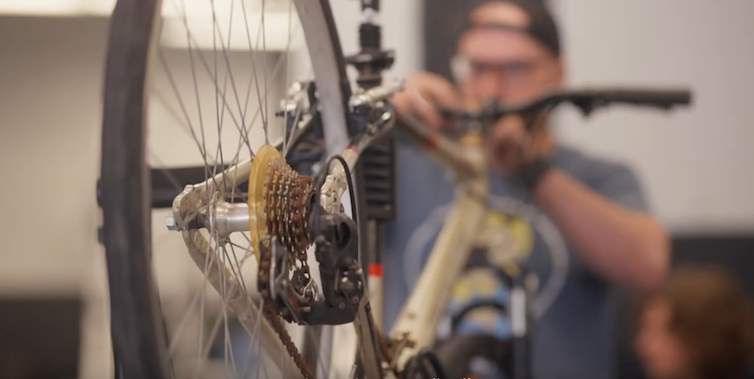
(Célia Kingsbury), provided by the author
A caring learning environment
Young people often talked about the difference between being in a classroom or in school in general. The freer atmosphere of the workshops thus contrasted with the more rigid school atmosphere.
They also emphasized the relaxing effect of the workshops, and sometimes the therapeutic role. The fact that it is an extracurricular activity could explain the feeling of comfort expressed by the young people.
One participant also expressed the positive effect of the volunteer supervisor’s attitude:
What I also appreciate is that he (the teacher) was there to support us (…) you don’t feel inferior and he’s there to help you, but at the same time he’s there to learn with you, that’s what I found very important.
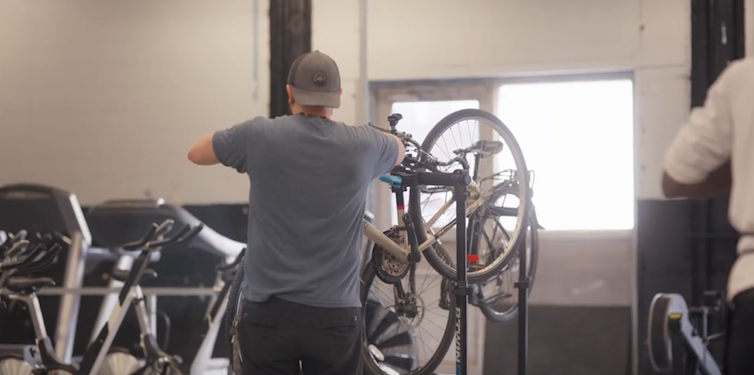
(Célia Kingsbury), provided by the author
Do things for you, not for the bike
Young people mentioned that before the start of the program, their main motive for participating was a free bicycle.
However, their motivation for coming to the workshops evolved over time: apart from the bikes, the pleasant atmosphere encouraged them to come back every week.
A young man who came back every week because he always had fun at the workshops also testified:
I would say that in the beginning it was complicated (…) we didn’t know many things (…) but most of our friends were there (…) and that means that I knew that when I was going to come here, I was going to laugh and have fun.
Be more independent in your movement
Several young people had some difficulty traveling by public transport, often due to the fact that they live far from popular places.
In fact, participants reported that neighborhood bus schedules are complex and trips are long.
Their new bicycle has become an essential element that positively contributes to their travel autonomy. They also identified cycling as a way of promoting their social participation and being able to participate in various activities.
To the question What are you going to do with your bike now?one of the young people answered:
I know it will be useful for me because I work not far away, and it can allow me to go there during the summer, take less time or even go to the park if I want, it is useful in everyday life.
Program Build your own bike wants to develop to a greater extent in Quebec (depending on funding) and improve.
Through this initiative, cycling combines education and health. And participants gain autonomy as well as skills.
We can bet that a program like this, combined with a more pleasant and safer cycling infrastructure, could contribute to the health and well-being of everyone.
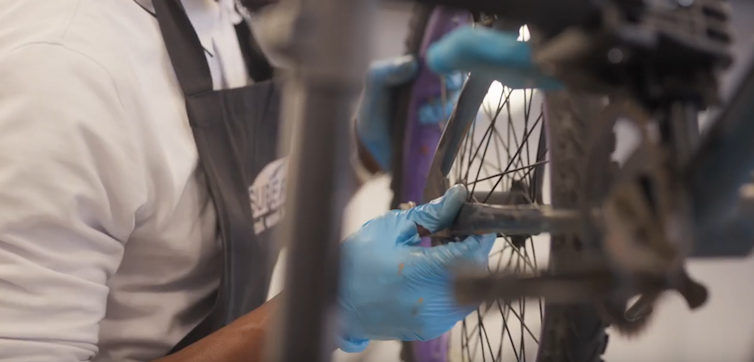
(Célia Kingsbury), provided by the author

